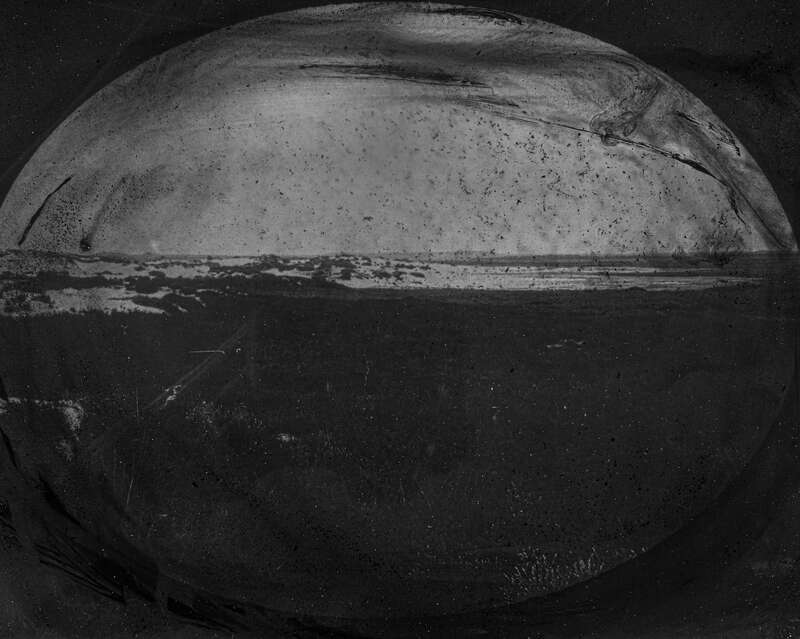
Dirk Braeckman, ECHTZEIT #123-24//AP, 2024 ©Dirk Braeckman
ECHTZEIT #123-24
This is part of Echtzeit. For an introduction from the editors, more here.
Yousra Benfquih
31 mei 2024 • 4 min
Some days, for some moments on those days, I am overcome by the precariousness of things, as sheer and fleeting as dragonflies. Not the fragility of our bodies, which – as sheer and fleeting as a dragonfly wing – can collapse at any moment, bodies that can be crushed at any moment – even long after never again – crushed like the ants they are compared to, these bodies that resemble mine, these ants I almost squashed underfoot on the plateaus where the wind blew hard and wild horses grazed in the distance, as keen as I was to catch a glimpse of those horses, I kept my distance from my love through those days in the lowlands, no longer able to bear my body’s vulnerability in someone else’s hands. Not the delicacy of the Earth those bodies move over – close or at a remove, hidden or in sight, this lashed, battered, black-and-blue Earth.
I mean the vulnerability of the laws our world is based on. Laws that determine which square of which distance we fall at, how the planets rotate and orbit their stars, laws about the movement of sound and light, laws about the expanding cosmos that, when it comes down to it, not in a philosophical or metaphorical sense, but technically, are no more than a formula, the stringing together of sometimes no more than a handful of symbols and numbers on opposite sides of two short parallel lines, with an opening between them, a blank space, a strip of air , a symbol like a mouth that says, with exact certainty: these irrefutably different symbols on opposite sides are the same as each other, so that the comparison is not a simile but a metaphor, not is like but is, mathematics dovetailing with poetry, and it’s no coincidence that we, during the break from maths, where our matching answers were still assessed differently, played the piano in the room hidden like a secret behind the assembly hall – do you remember – hidden like a mouth behind a mouth, like a black hole, and wrote poems, because her formulas, her comparisons, her verse-like laws released something, glimpses of the music of the things we circle around.
Laws that tell us how old this star is, where something will land, a stone that a child somewhere throws at a tank, laws that calculate the height and strength of waves, of walls, exact, precise, meticulous laws that are based on thorough research, which is based in turn on a number of agreements, a handful of assumptions we have accepted – just as you accept that it is a rainy day, as you accept that pain is not yet ready to leave your body – knowing that they themselves cannot be established, these assumptions, essentially no more than suppositions, without any proof of their truth, and that the propositions on which this house, this system rests are not robust but unsteady, at most clear sketches, bright illustrations of doubt.
Like the presumption that two lines meet at infinity – what if they don’t, which planets would change direction, at which speed would the universe contract, would atoms change the direction of their spinning like rebellious dervishes, would the asymmetry between matter and antimatter reverse, between history and truth, would black holes remember, would dreams recall us, would the Earth no longer drift through the ether but float in water, would waves arise at the high-water mark and move towards the middle, would a middle, would language, would space-time, would unpromised lands... In which form would strings vibrate if the lines didn’t touch, would I then stop being so scared that we are too close to the abyss, would we too remain untouchable, to pleasure, to mercy, to violence
Or, like the assumption that everything, no matter what number, multiplied by nothing is nothing, some days, in sheer, fleeting moments, thin as the veins in a dragonfly wing, you can hear the whispering through the chinks in the parallel walls of the unsteady house, a questioning whispering, not with the intention of bringing down the construction, not with the goal of sowing unrest, but out of simple, disinterested curiosity, what if it were everything?
Originally in Dutch.
Translated by David Colmer.